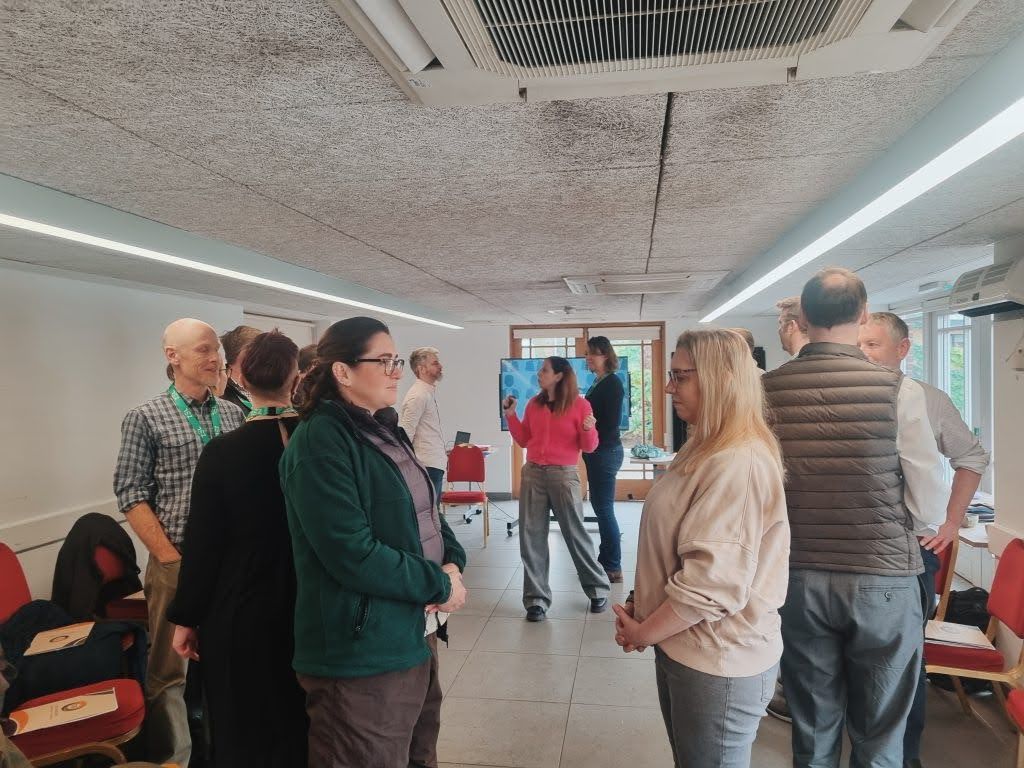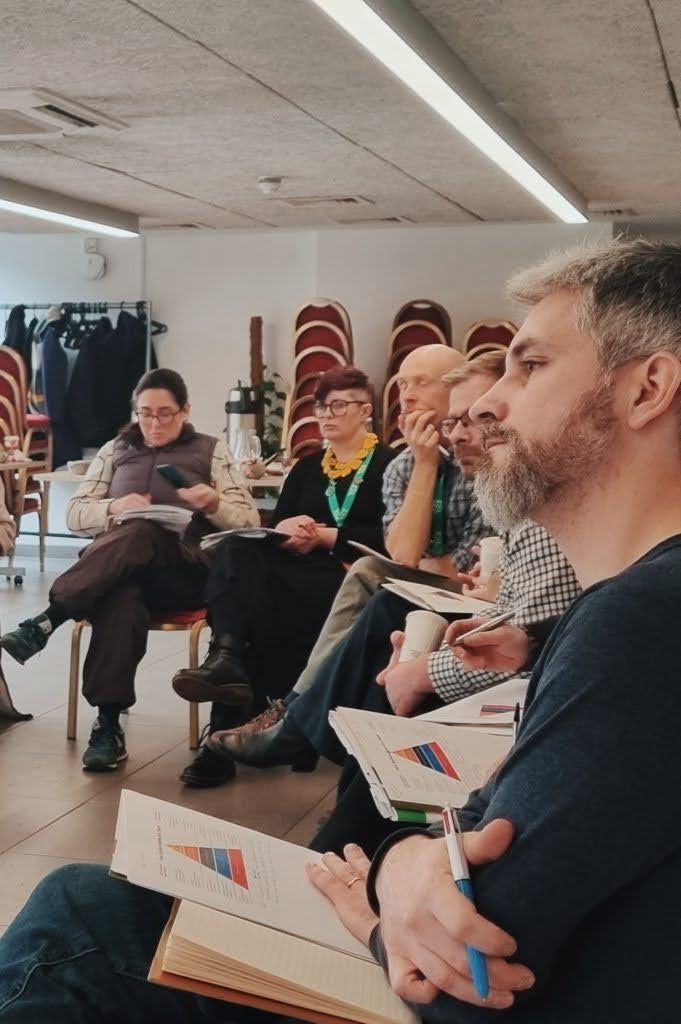BlogsHow to Build Trust at Work
How to Build Trust at Work


Share
How to Build Trust at Work


Trust is one of the core components of a thriving team. Like any relationship, “without trust, you have nothing.” In today’s blog, I will be exploring the key ways to build trust in the workplace. But first things first, let’s delve into the why.
Why Is Trust At Work So Important?
The answer to this may seem obvious, but some leaders consistently prioritise results over trust and camaraderie. In fact, some managers’ actions and behaviours may betray trust completely.
We spend approximately ⅓ of our lives at work. It is, therefore, important that we feel safe, seen and secure in whichever work environment we choose. Trust is an intrinsic foundation of a happy team - and from a manager’s perspective, employees will work harder and shine brighter under a boss that they trust to have their back. Do you want a productive, high-performing team? Trust comes first.
But how can trust be built, if it’s already been broken?
6 Ways to Build Trust in your Team
Trust Your Team
Trust should ideally be built from day one, yet can also be rebuilt over time - through conscious action.
One of the key ways to build trust at work is to trust your team first. Trust is not going to be reciprocated if you’re a micromanager with zero faith in your employees. We all know the type: over-attentive managers who are breathing down your neck during any menial task. Or, worse – sigh, roll their eyes and insist “I’ll do it”, without giving you a chance to learn.
I’m a company founder, so I get it: your business is your baby, and you want everything to be just so. Also, founders often tend to begin as solopreneurs, so we’re used to wearing an array of hats. You start out playing these multiple roles (and struggling to remember all the lines!) – but a business generally isn’t a one-man/woman show! As your company grows,
you’ll reach a point where you realise you have to let go of the reins, and delegate tasks to the team around you – who will be specifically qualified and suited to the role in question. I’ve found that, if you hire the right people, you will have the luxury of letting go – and not having to second guess every decision. Trust the process, and most importantly, trust your people.
Also, we’re all human – and it’s human to make mistakes. To be a great manager, you need to give employees the opportunity to learn and grow, and if you instil trust from the get-go, they will flourish within your team. When people have faith in you, the sky’s truly the limit.
Be an Active Listener
In many of our workshops, we teach team members about the importance of active listening. There are five levels of listening: interrupting, hijacking, advising, attentive listening and active listening – and we naturally want to aim for level five. However, in this day and age of short attention spans and immediate gratification, we often don’t realise how lacking we can be in the listening department. Next time you interrupt someone mid-flow, or find yourself waiting for your turn to speak, consider how you can be a better, more active listener.
This is especially crucial if you are in a management role. You need to make sure that, in addition to being a prominent voice in your organisation, you also listen to your colleagues. Encourage open communication by ensuring that they know you are a safe space to share their thoughts, opinions and feelings. Also, managers aren’t the only people who can give constructive criticism! Take on board feedback, and remember: actions speak louder than words. You can build trust with your employees by actioning their feedback and ideas (where possible), and showing them that their voice is of equal importance to yours.
Consistency is Key
Consistency is always key. Whilst nobody’s perfect, as a manager you have a responsibility to ensure that you are as consistent as possible in your role. This includes consistency in your expectations for your employees, which allows you to run a tight but fair ship. It’s okay to have standards and expectations – but you must communicate them. Murky waters are (ironically) like gasoline to a flame when it comes to employee-employer trust.
What’s more, be aware that you will likely have team members who are neurodiverse. Many neurodiverse employees rely on routine and consistency to navigate through the working day, so please be mindful of this if and when you throw a curveball of any kind at your team. Be patient, understanding and – as I mentioned earlier – always actively listen.
Prioritise Positive Reinforcement
Positive reinforcement has been psychologically proven to a) make us feel good and b) replicate the rewarded behaviour. It’s simple: if you praise your employees for their successes – even the little wins shouldn’t go unnoticed – they are more likely to continue performing well. It’s a win-win, right?
I, for one, also want to debunk the stick vs. carrot theory. Some leaders use the carrot and stick (reward and punishment) approach to motivate their employees. This can certainly be a slippery slope, particularly if employees are rewarded for compliance – and publicly critiqued in team meetings. I firmly believe that the saying: “Praise in public, reprimand in private” is a fundamental tool for good management.
Rather than being incentivised by the carrot vs. the stick, I would encourage managers to not shy away from feedback – but share it in a one-to-one scenario, and also ensure that any criticism is constructive.
It is also important to show your appreciation for your employees daily; happy workers are cooperative and productive, and everyone wants – and deserves – to feel like a valued member of a team.
Honesty is the Best Policy
This is the case in all areas of life – but especially in management. You will gain your employees’ trust by being transparent, and this begins at the job application stage: making role responsibilities and wage crystal clear. During their employment, you can also build trust by being honest – where appropriate – about everything from their career trajectory, to the ins and outs of the company.
Also, it works both ways: if you have an open dialogue with your team, this will embolden them to be honest with you. 9 in 10 recruiters.) claim that employees who feel like they can be honest with their manager are more loyal to the organisation. And that’s no word of a lie!
Facilitate a Happy, Collaborative Environment
A team built on mutual trust and respect will undoubtedly be a happy one. You can help to foster a happy work environment by being a positive presence in the room. Get to know your employees as individuals; show that you care about them beyond their function in your team. We know that time is money, but does every single conversation have to be “productive”?Finally, it is crucial that your employees trust you – and each other! Team building activities are a fantastic way of nurturing a collaborative workforce and help employees to get to know each other outside of a strictly professional context. They will bring so many valuable lessons back to work on Monday morning! Training companies like ours specialise in designing bespoke team building days for your team – and we also have programmes that help employees and managers alike navigate difficult workplace dialogue. Enter: Courageous Conversations.


What is Courageous Conversations Training?
We deliver training focused on having brave and courageous conversations with your team members. Our workshops are tailored specifically for your work context and culture, and will equip you with practical tools and techniques to have effective feedback conversations at work.
We understand that facing up to difficult, emotionally challenging situations with your team is tough. We also know that when we have the skills and confidence to lead with insight, compassion and empathy, working relationships and standards of performance drastically improve. We offer the opportunity to work through our feedback formula in a small group setting, in a participatory, safe and non-judgemental atmosphere, with the illumination of professional actor role-players and authentic scenarios to allow you to really see the theory in practice.
Over the last few years, we have been working with the superb team of managers at ZSL : London Zoo. As one of the UK’s leading conservation charities, ZSL delivers vitally important work, which only amplifies the need for cohesion and harmony on a day-to-day basis. I have led a number of Courageous Conversations workshops for managers at ZSL, and most recently, delivered our new Leadership Development Programme, focusing on leading effective teams. One of the key components across both of these programmes is building trust within your team - and leading with courage, confidence and compassion.
Do you want to go beyond the advice in this blog and have a training day designed for you and your team? Could you benefit from expert guidance on courageous conversations with your employees? Or do you think your employees would appreciate an immersive, creative day of team building and bonding? Get in touch today!
Share this post